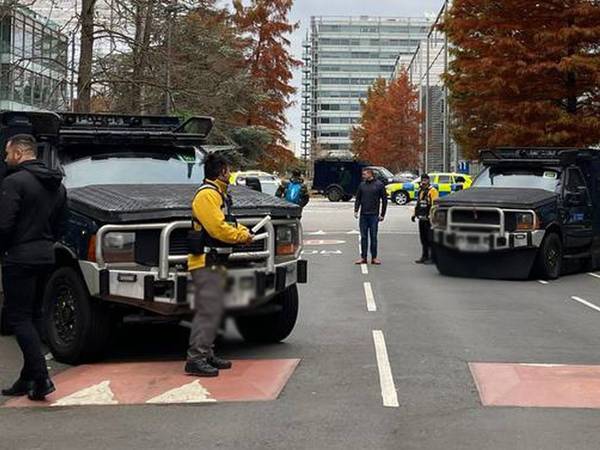The Israeli Mossad alerted UK authorities about an impending Iranian plot to carry out terrorist attacks against Iran International’s journalists based in London.
Israel’s Channel 11 reported Monday, November 21, that Mossad informed Britain’s spy agency about the threats facing two journalists working for the London-based channel.
According to further information obtained by Iran International, threats against its journalists, revealed by the Metropolitan Police earlier this month, came from the same team that sought to target Israel’s former consul general in Istanbul, Yosef Levi Sfari, who was rescued by authorities and sent back to Israel.
In June, Israeli and Turkish media reported that a terror cell sent to Turkey by the Islamic Republic was busted, and its eight members who had entered the country with fake Tajik and Italian passports were arrested.
The agents were staying at the same hotel in which Levi Sfari and his partner Roni Goldberg were staying for their vacation, with reports alleging that their other targets were Israeli tourists. "The Iranian squad was caught red-handed at the last minute," the reports added. According to Turkey's National Intelligence Organization (MIT), the eight were arrested in raids on three houses in Istanbul’s Beyoglu district.
The mastermind of the plot was Rouhollah Bazghandi, the deputy head of IRGC’s counterintelligence (Unit 1500). A former senior IRGC official had earlier told Iran International that by using amateur agents to carry out the attacks against Israeli targets in Istanbul, Bazghandi dealt a heavy blow to IRGC Intelligence Organization. He was also in charge of thwarting plots against Iran's security officials inside Iran; however, his involvement in the Turkey plot, and apparently his absence, among other reasons, turned Iran into a safe haven for Israeli Mossad agents who launched several sabotage operations and assassinations.
An intelligence source told Iran International that Bazghandi is the man who was in charge of the failed attack against its journalists.
London’s Metropolitan Police formally notified two of our journalists early in November of “imminent, credible and significant risk” to their lives and those of their families. Other staff members were informed directly by the police of separate threats.
The Scotland Yard has also placed armed police forces outside Iran International’s headquarters since mid-November, following further public threats by the Islamic Republic’s authorities – such as the intelligence minister and top Revolutionary Guard’s commanders against the channel.
Britain’s MI5 said on November 16 that UK authorities have discovered at least 10 “potential threats” since January to “kidnap or even kill British or UK-based individuals perceived as enemies of the regime.”
Faced with nationwide antigovernment protests since mid-September, the Islamic Republic has blamed foreign-based Persian broadcasters such as BBC Persian and Iran International of “fomenting unrest”, while all media in the country are under tight government control and present protesters as “rioters” and “terrorists”.
Iran’s Intelligence Minister Esmail Khatib on November 9 said the Islamic Republic regards Iran International as “a terrorist organization,” adding that its workers and anyone affiliated with the channel will be pursued by the Ministry of Intelligence.
Iran has a long record of targeting dissidents and independent journalists who found refuge in other countries. In the latest example of terror operations abroad, Iranian intelligence abducted dissident journalist Ruhollah Zam who was visiting Iraq in 2019 and took him back to Iran where he was executed in 2020.
